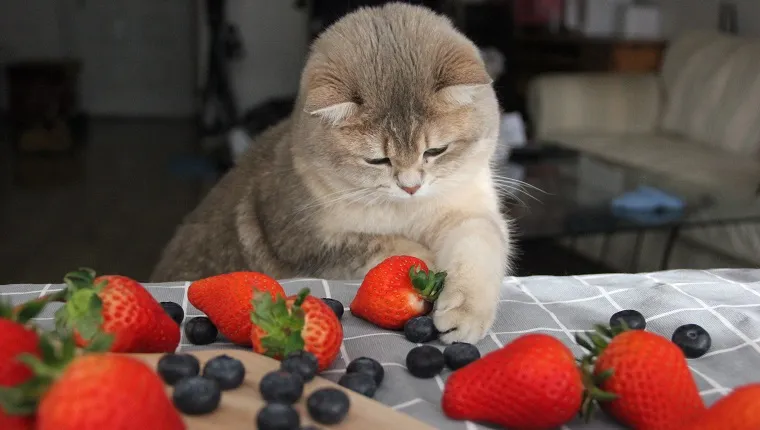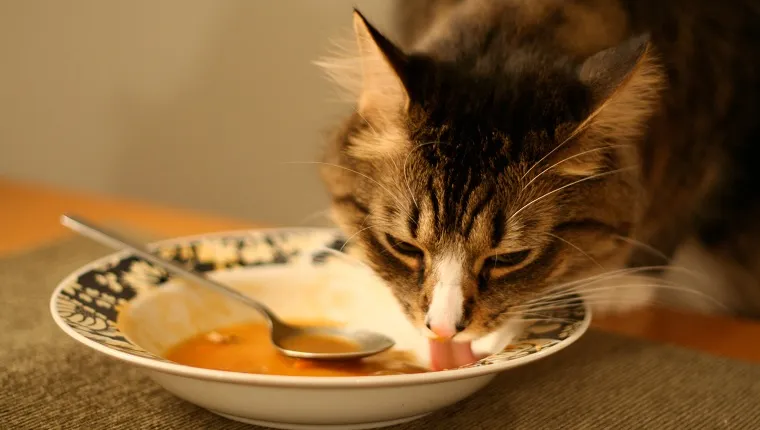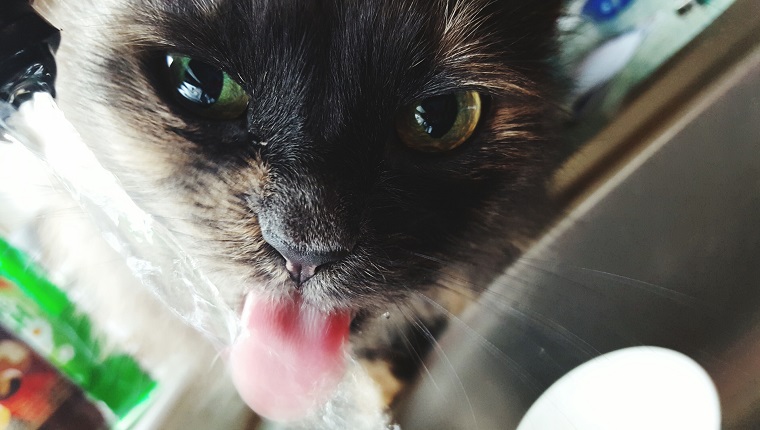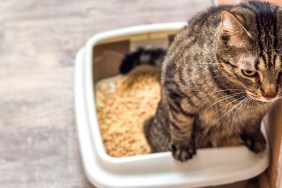Cats are unique creatures in so many ways! Did you know that your cat’s taste buds are very different from your own?
In fact, cats can be picky eaters because of just how differently they perceive taste. While we have around 9,000 taste buds, cats only have around 500.
In addition, their perceptions of bitter and sweet are far different from ours. Here’s how.
Cats Perceive Bitter Differently Than We Do
(Picture Credit: Jamie Bernard / EyeEm/Getty Images)Several chemical compounds have a bitter taste, including PTC, PROP, aloin, and denatonium. Cats respond differently to these compounds than humans do, according to a study of cat gene sequences.
Cats’ taste receptors, for example, only respond to the PTC compound and not PROP, which is different from any other species studied so far. PROP has a structure similar to Brussels sprouts and broccoli.
The study, published in BMC Neuroscience, also found that cats were less sensitive than humans to aloin, but far more sensitive to denatonium, which is a bitter taste used to prevent accidental eating of certain chemicals.
The study suggests that cats taste bitter flavors differently and may have a more narrow range of bitter than humans do, according to AAAS Science Magazine.
Scientists are still figuring out what these new findings mean as far as how cats’ taste buds work, but it could lead to different flavors being used for cats’ medicine and food.
Cats Can’t Taste ‘Sweet’

In addition to having a narrower sense of bitterness than people, cats also can’t taste sweetness at all!
The ability to taste sweetness comes from two genes: Tas1r2 and Tas1r3, according to Scientific American. The sweetness taste signals that a food is a carbohydrate, which is important for omnivores like humans.
Carnivores like cats, however, don’t need carbohydrates. As a result, all cats — from domestic cats to lions and tigers — lack the amino acids that make up the Tas1r2 gene.
This means that cats are genetically incapable of tasting sweetness. That’s why treats for cats aren’t made with sugar — a cat wouldn’t care!
Some pet parents swear their cats love sweet foods. However, it’s likely the high fat content in those sweet foods that attract feline eaters.
Cats Can Taste Things We Can’t

Cats also have taste receptors that evolved to taste things we cannot. For example, cats can taste adenosine triphosphate (ATP). We humans can’t distinguish this taste at all.
ATP supplies energy in living cells and can be a signal for meat. This helps cats know that meat is good for them.
In summary, your cat’s perception of how things taste is very different than yours! They may not be aware of sweetness at all and have a narrower sense of bitterness, but they also pick up on tastes that you would completely miss.
So next time you’re thinking of offering your cat a treat, skip the candy, even if it’s something you would like. Instead, reach for the bag of cat treats that you bought at your local pet store. Your cat will appreciate them a lot more!
What do you think your cat tastes when they eat food? Are you surprised to learn how different their taste buds are from ours? Let us know in the comments below!









